Features of using glass sealant
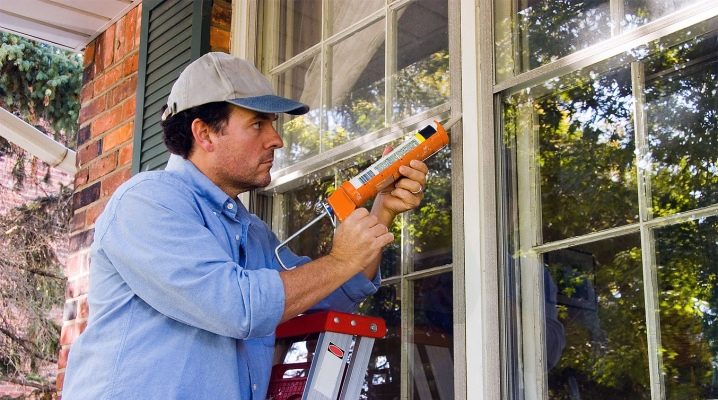
All glass products must be not only durable, reliable in use, but also sealed. This primarily applies to ordinary windows, aquariums, car headlights, lanterns and glass. Over time, chips and cracks may appear on their surface, which, with further operation, provoke mechanical damage. To prevent this, it is enough to seal with special glass sealants. This building product is easy to use and allows you to simultaneously solve two problems: it seals the connection points and protects the glass from the negative effects of external factors.
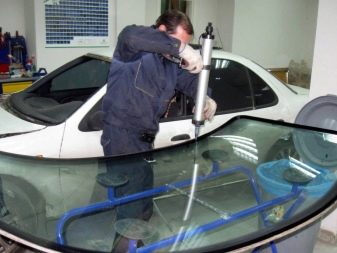
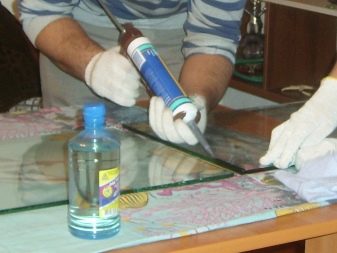
Peculiarities
Glass sealant is a unique material based on liquid polymers and rubbers. Due to the special components included in the composition, the product, when exposed to air, begins to interact with the environment and becomes elastic or solid (polymerizes). In the process of manufacturing a sealant, special technologies are used that provide a molecular combination of organic substances and polymers. As a result of this, a durable material is obtained; it forms a mesh structure on the surface of the glass that is resistant to moisture and mechanical damage.
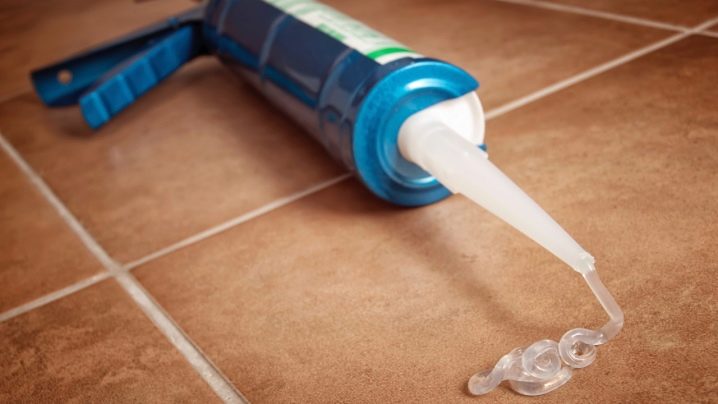
The main advantages of glass sealant include.
- Reliable sealing. This indicator is considered important, since not only the endurance of the load on the glass surface depends on it, but also the obstacle to the ingress of dust and moisture between the joints.
- Elasticity. The material has a special structure, thanks to which it is easy to apply to the base and creates flexible connections between the surface and the glass. This is important for the finishing of car glass, as they are often subjected to vibrations and vibrations, after which a mechanical load is formed and the glass can deform and crack. Thanks to the properties of the glass sealant, the surface on the outside is durable and protected, while the inside remains elastic.
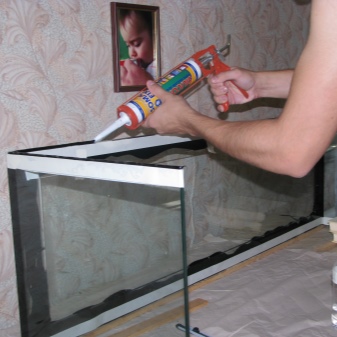
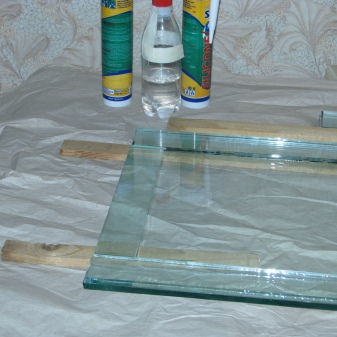
- Resistance to mechanical damage. Regardless of the scope of application of glass, it can be exposed to the ingress of water, chemical solutions, dust and small particles of debris. As a result, the base loses its strength and begins to collapse. Glass sealant, on the other hand, does not react with external sources of influence and creates a reliable film, thereby providing a permanent connection.
- The ability to use in any temperature regime. Various non-standard situations may occur, when the glass may first heat up and then cool down sharply. If the sealing is done correctly, then the sealant will be able to withstand the temperature range from -40C to + 150C.
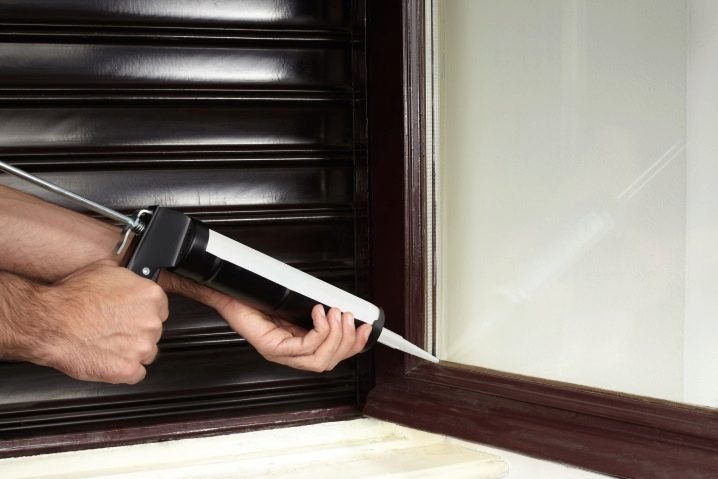
This material has other features, but they, as a rule, depend on the type of product and its composition.
Views
Today the construction market is represented by a huge selection of glass sealants. Each of them is characterized by individual characteristics and scope.
Depending on the basis on which the material is made, two product groups are distinguished:
- Acetate.
- Neutral.

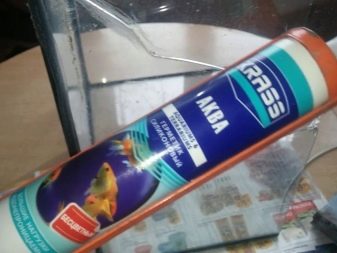
Sealants belonging to the first group are most often used for structural sealing of insulating glass units or for glazing windows. As for the second type, it has high adhesion, so it can be used not only for sealing glass, but also for sealing the external seams of facades, supporting structures made of metal.
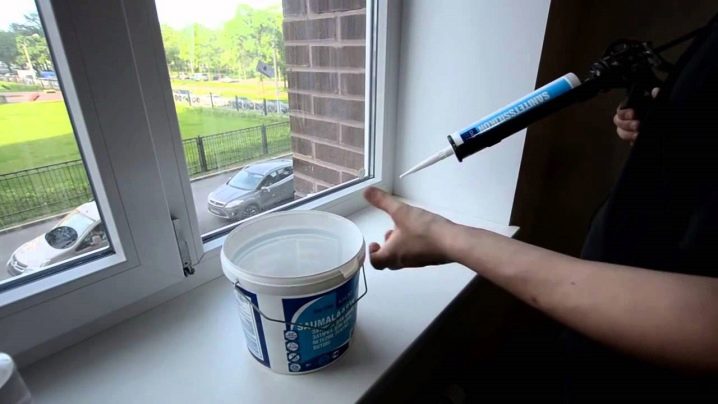
The sealant can differ in the components that make up its composition and can be varied.
- Acrylic. This material is considered ideal for sealing windows. They can cover both new glass units and use it to seal old ones. The sealant creates a strong layer between the glass and the frame and prevents air from entering. The result is a tight connection that is resistant to moisture and low temperatures. Most builders consider this sealant to be a versatile glass sealant.
- Butyl. It is a construction product that is intended for finishing double-glazed windows. It is mainly used when several glasses need to be joined together. Such a sealant is characterized by excellent protection and well resists the penetration of wet steam and air into the space between the panes. It should be applied to the work surface at temperatures above 100C.
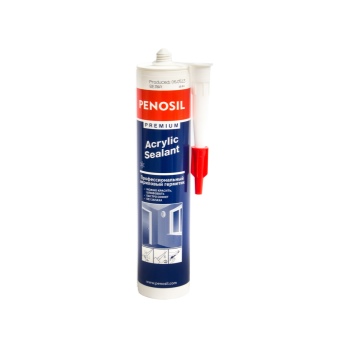
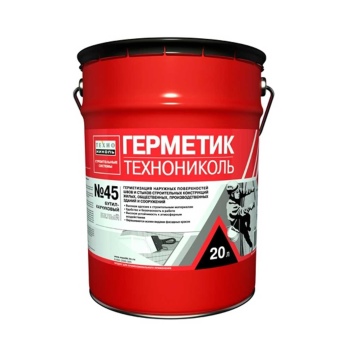
- Polyurethane. The material has an excellent seal structure and is therefore often chosen for sealing plastic and glass. In addition, it can additionally play the role of thermal insulation. The surface after sealing with such a sealant acquires strength, and its service life increases. Craftsmen most often use this material for edge joining. Glass reinforced with a sealant is not "afraid" of temperature changes, acids and oils.
- Silicone. It is the most common and demanded type of sealant. It is used at almost all stages of construction work. The material is also well suited for sealing facade glass, as it has high performance indicators. The popularity of this product is due to the fact that it is inexpensive and characterized by excellent quality.
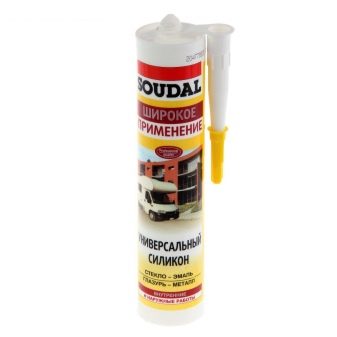
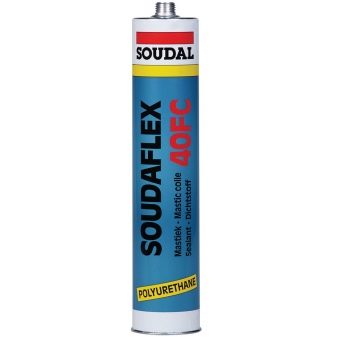
Thanks to its unique characteristics and special composition, silicone glass sealant allows you to reliably seal joints and adhere materials. In addition, the product has found its application in car repair, as it can act as gaskets. The problem of sealing joints between glass and coatings such as metal, ceramic or brick is often encountered. Many adhesives cannot cope with this, but silicone glass sealant will ideally glue all objects, including elastic polymers, plastics, aquariums, and automotive parts.
In addition, the building product is used to seal joints between various glass objects. In a car, it can be used to strengthen headlights, fixed windows and sunroofs. However, when using this sealant, you must remember that it is not suitable for work in which glass must be combined with polymers. When interacting with fluoroplastic, polycarbonate and polyethylene, a chemical reaction occurs and the material loses its properties. In addition, this sealant can degrade when exposed to gasoline, synthetic oil and ethylene glycol.
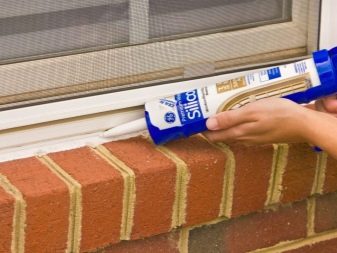
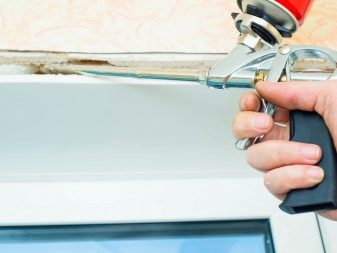
Recently, a new product such as polysulfide sealant can be found on the construction market. It does not contain solvents in its composition, it is produced not in tubes, but in large cans and is used, as a rule, in the manufacture of insulating glass units. This sealant is obtained by mixing polymers with pigments and a structuring agent, resulting in a sealing material that has high resistance to gas, steam and water penetration. Typically, this product is used as a secondary sealant. The sealant is applied simply, it is not harmful to human health and does not require additional precautions.
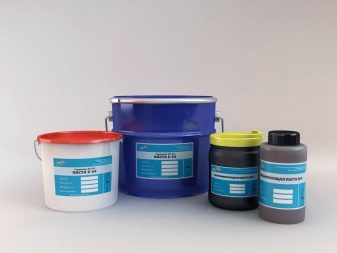
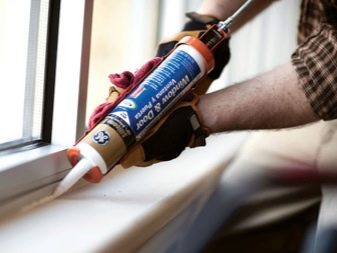
DIY sealing
You can seal the glass yourself with your own hands, since for this type of work, easy-to-use sealants are used. Before starting the process, you must carefully prepare the base.For this, its surface is cleaned of dust and dirt, if necessary, then washed and dried. At the same time, it is worth paying attention to the fact that the application of the sealant can be performed only in a certain temperature regime, which should not exceed + 40C and not be lower than + 5C.
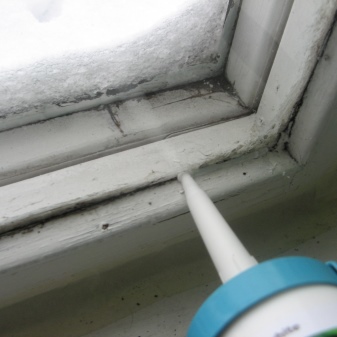
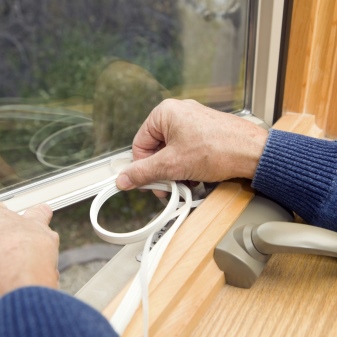
To work with glass sealant, you need to use a special construction gun, it allows you to economically use the mixture and simplifies the sealing of the seal, making the seams even. Before placing the can with the adhesive mixture into the gun, cut off the tip. Apply the sealant in a small layer, it must be done evenly and evenly. It is advisable to apply the material in a continuous motion, this will provide a high-quality result. Otherwise, the mixture will be distributed in layers of different thicknesses and after it dries, you will have to cut off the excess.
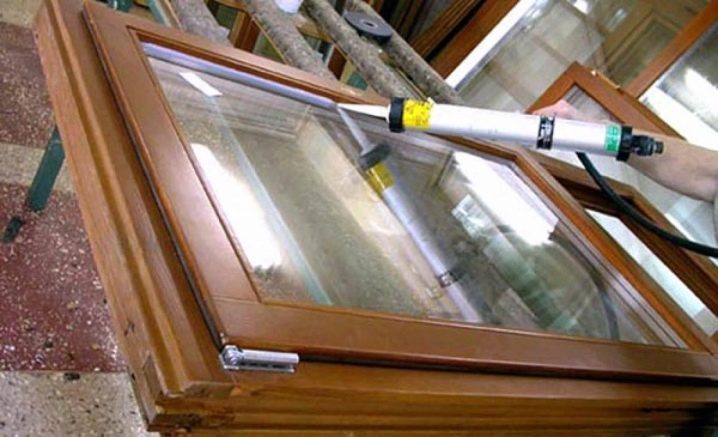
In the event that, when sealing, the mixture accidentally falls on the surface of glass or other material, then it should be immediately removed with a cloth soaked in gasoline, otherwise the sealant will quickly dry out and it will be difficult to clean it. In addition, the sealing must be carried out in special protective clothing and gloves.
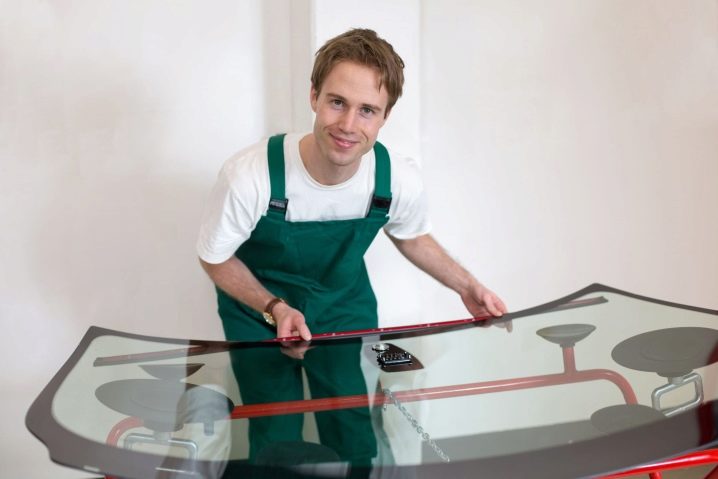
Advice
The key to a high-quality glass repair is considered not only the correct choice of sealant, but also the technology of work.
For a successful seal, it is important to consider the following guidelines.
- Before purchasing a sealant, you should determine the level of damage to the glass and the need for such additional elements as fasteners, plugs or boards. It is also important to consider what material the parts in contact with glass are made of, since some sealants have limitations in working with polymers.
- To avoid unnecessary consumption of the mixture, you should calculate in advance the surface area that needs to be glued.
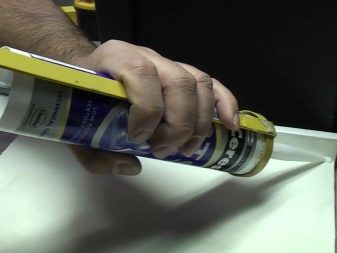
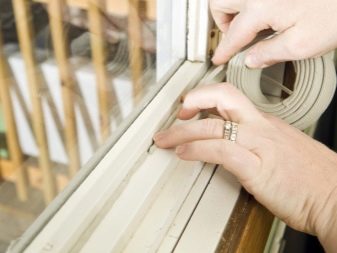
- Correctly selected type of sealant will allow increasing the strength of sealing, therefore it is necessary to take into account in what conditions it will "work", whether it will be affected by vibrations, pressure, moisture and temperature. In addition, the environment will play a huge role. The presence of water, gasoline and oils can adversely affect the operation of the mixture and it will not last long.
- When purchasing a sealant, it is advisable to pay attention to how to apply it. Many mixes are used on their own, and some require an additional primer or activator. Also, when applying sealant, there may be a need for masking tape, sandpaper and detergents. All this must be purchased in advance.
- Before working with the sealant, you will need to prepare tools such as a construction gun, spatulas and brushes.


- When sealing, you should pay attention to the fact that each type of material is characterized by a certain surface preparation and drying time. Subsequent glass finishing is possible only after the sealant has completely dried. It is also important to take into account that when using the mixture, the formation of its surplus cannot be avoided, therefore, it is necessary to clarify the methods of their removal.
- It is undesirable to purchase cheap products, since an affordable price is not always characterized by high quality. It is best to give preference to well-proven manufacturers that are known in the market and have positive reviews. A poor-quality sealant will quickly darken, become brittle and begin to flake off, as a result of which the surface will require repeated repair. Therefore, you cannot save on quality. In addition, more expensive products have better texture and are applied quickly and easily.
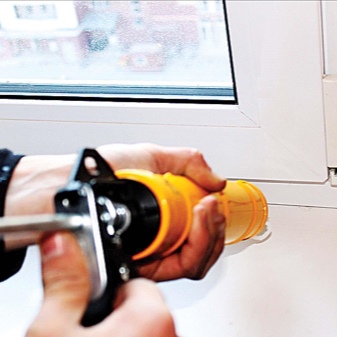

- Before buying glass sealant, you must carefully study the instructions and pay attention to its physical and chemical properties. For some types of application, the temperature range is from + 200C to -70C, but if the packaging indicates the range from + 20C to -5C, then it is best to refuse such a product,since it will not last long and will not be able to provide reliable protection to the glasses.
- At the time of purchase of a sealant, the date of issue and the permissible shelf life are considered important. As a rule, expired products will not be able to dry on the glass and will glue the parts poorly. In addition, a product with an expired shelf life will not have a transparent, but black color. If all of the above is present, then the purchase cannot be made.
- Sealing, sealing and gluing must be carried out with gloves and at the end of the work the room must be ventilated.
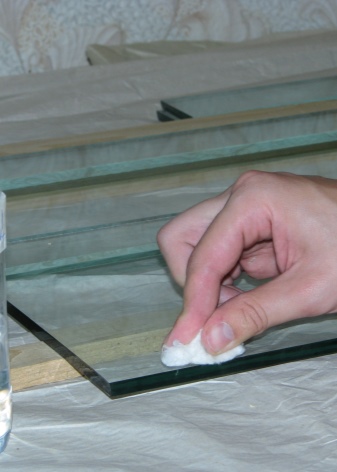
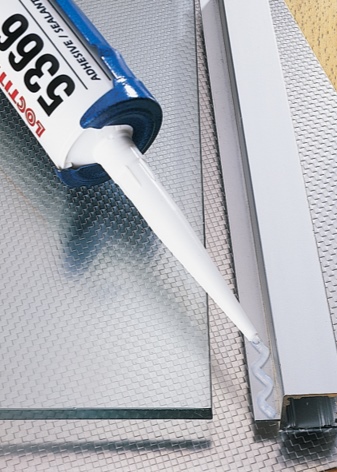
For the features of using glass sealant, see the following video.













The comment was sent successfully.